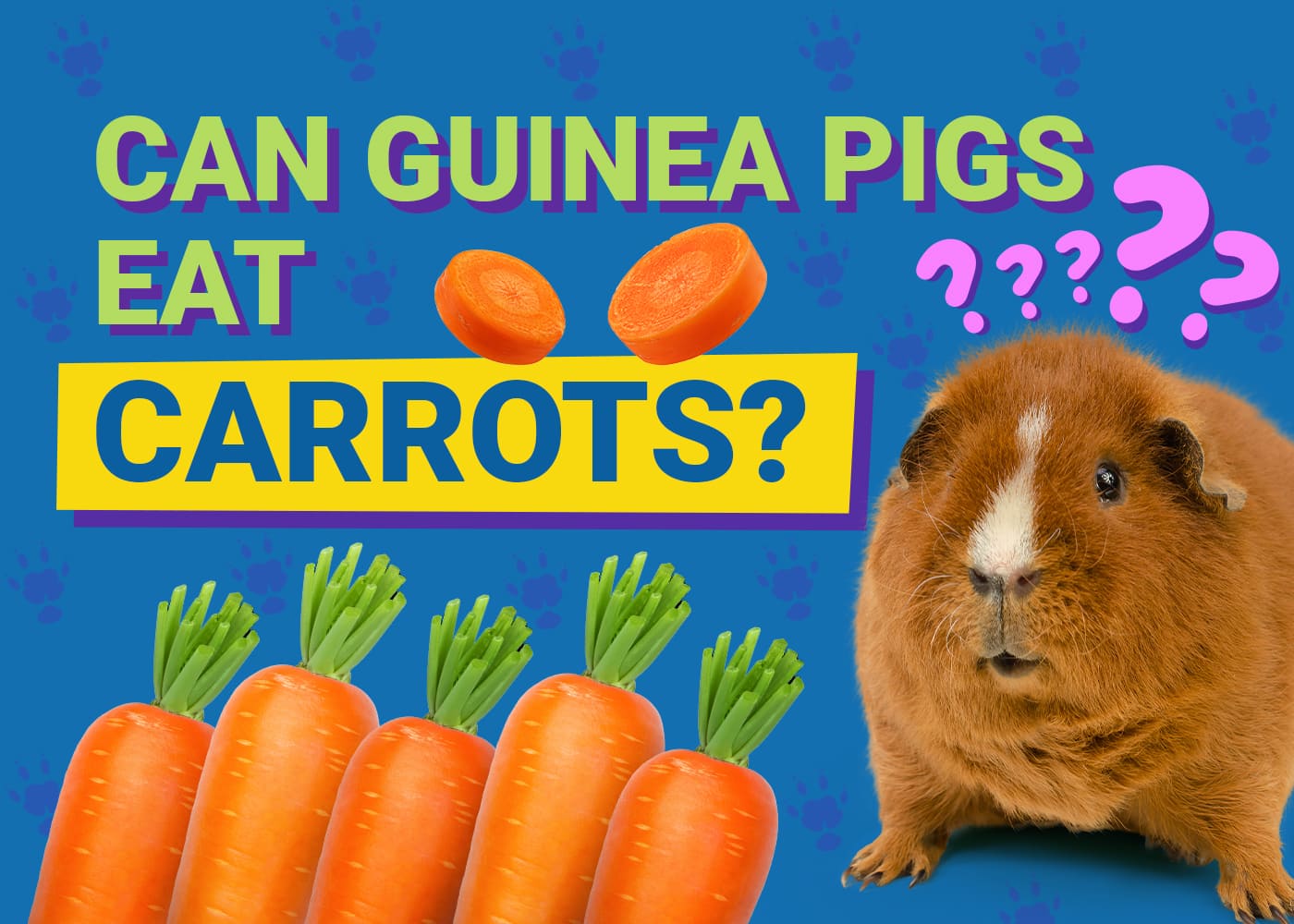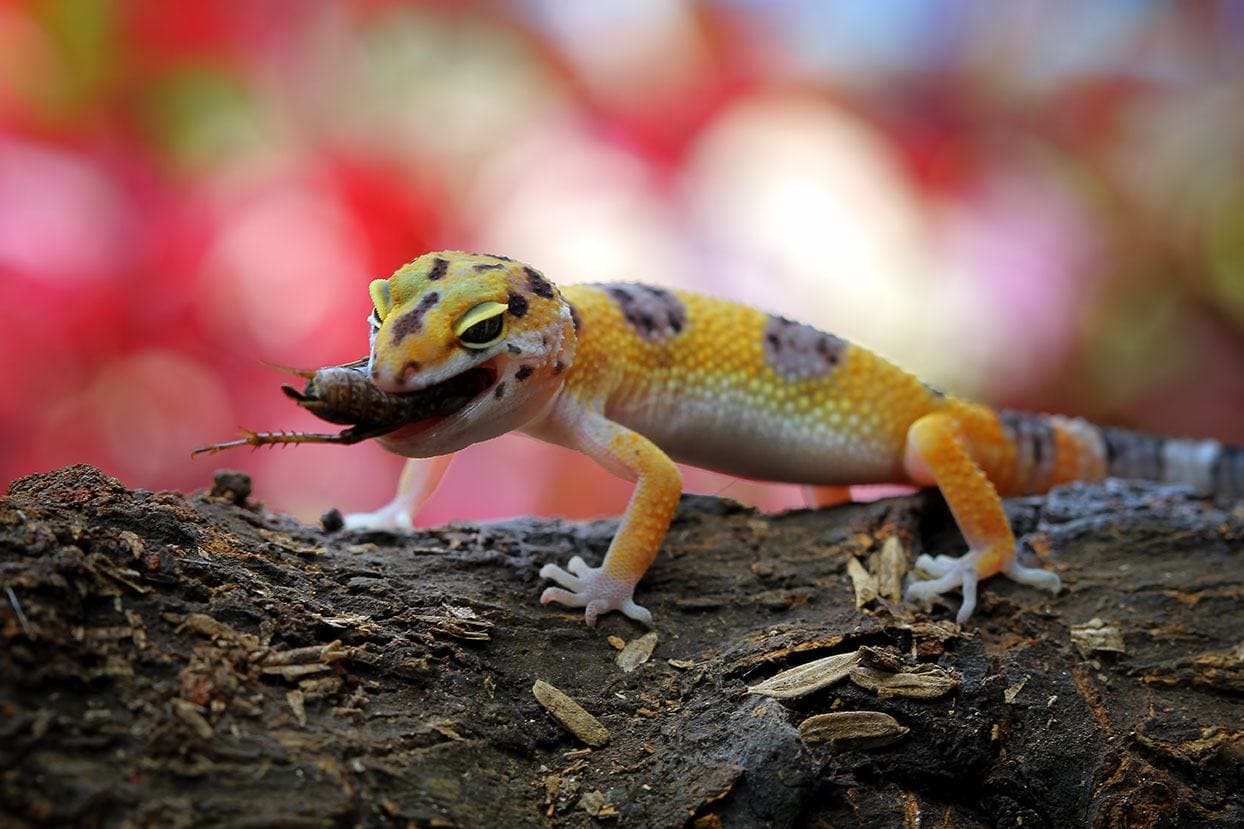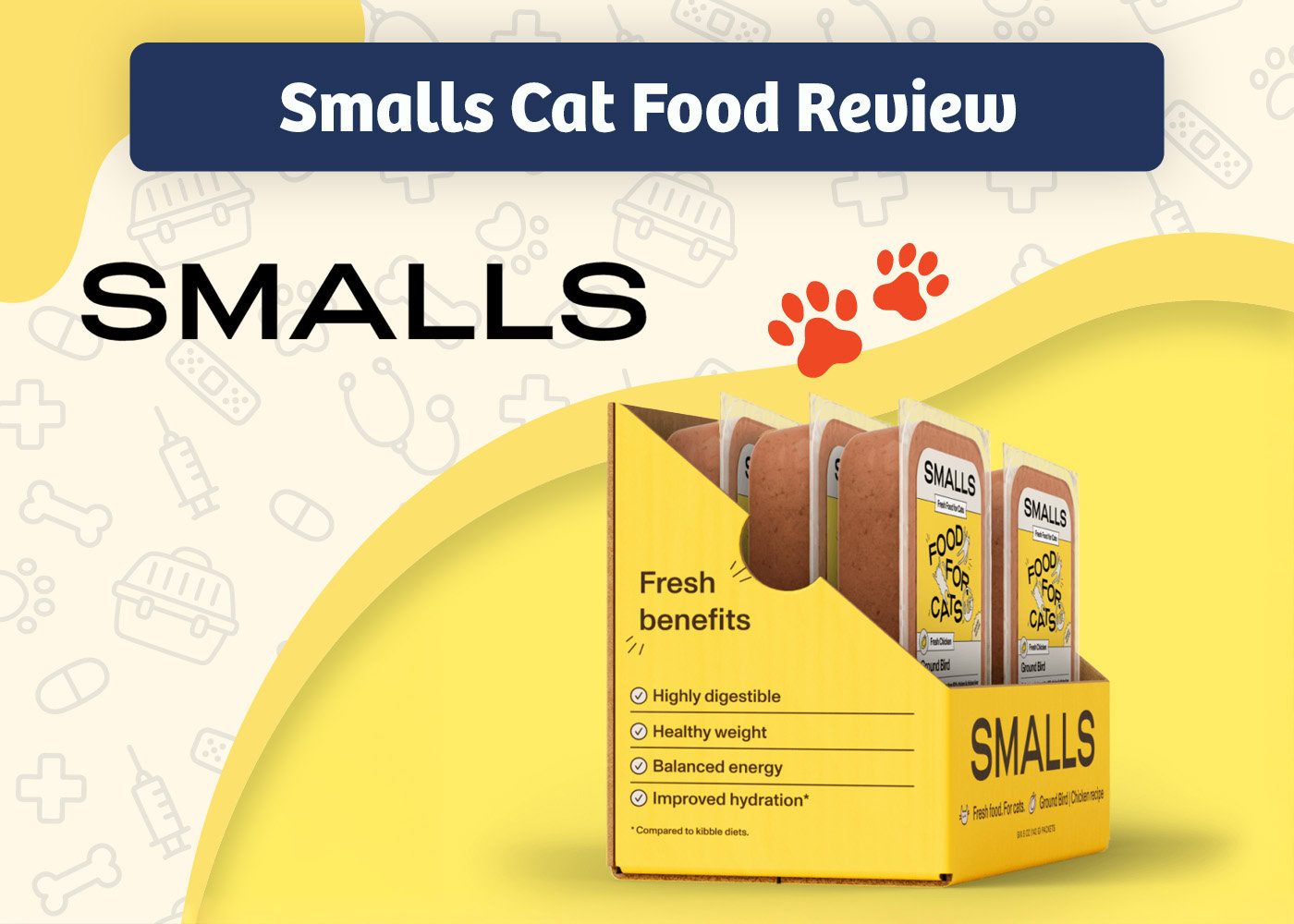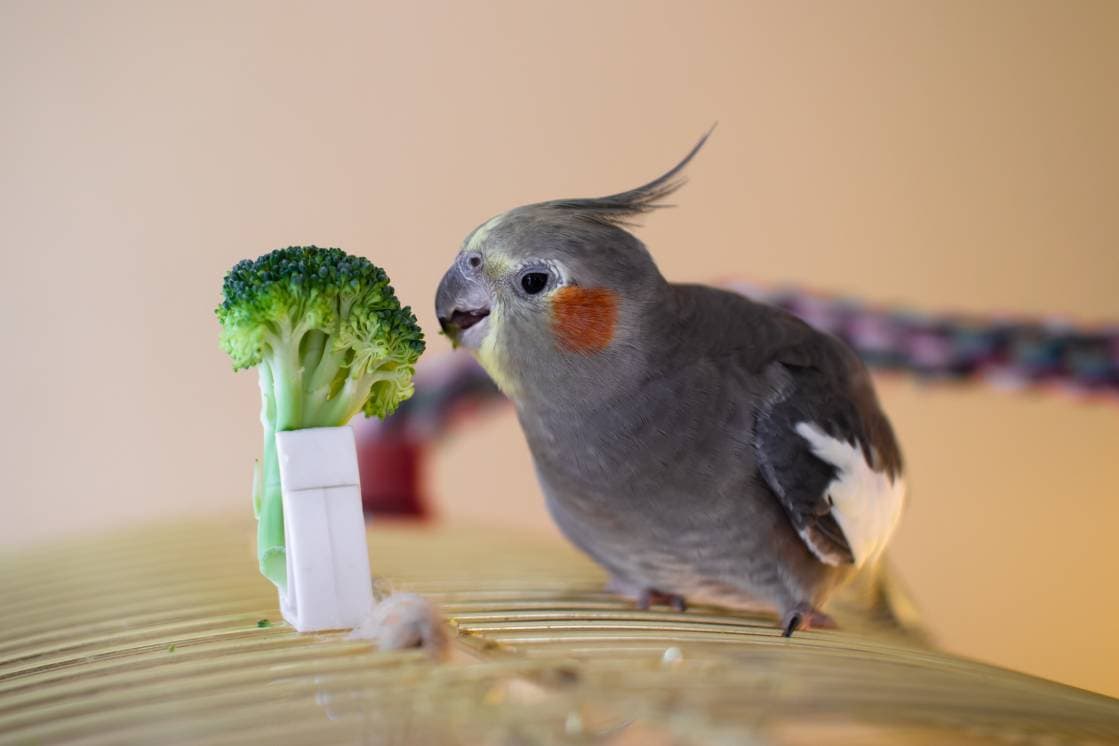VET APPROVED

The information is current and up-to-date in accordance with the latest veterinarian research.
Learn more »Click to Skip Ahead
If you want to supplement your guinea pig’s diet with fresh fruit and vegetables, you might wonder if carrots are safe for your pig to eat. Carrots certainly taste delicious to most guinea pigs, and they can look happy while munching on carrot slices. But are carrots something you should be feeding your guinea pig regularly or even at all?
Before we dive into our in-depth information, we’ll put your mind at ease by saying carrots are safe for your guinea pig to eat as long as they’re served in moderation. However, you shouldn’t feed your guinea pig carrots if they’re overweight or have diabetes or allergies.

Benefits of Feeding Carrots to Guinea Pigs
Carrots are packed full of beneficial vitamins and minerals that keep your guinea pig looking and feeling healthy.
- Water: 88.3 grams
- Carbohydrates: 9.58 grams
- Protein: 0.9 grams
- Fat: 0.2 grams
- Vitamin C: 6 mg
- Calcium: 33 mg
- Potassium: 320 mg
- Fiber: 2.8 grams
Source: https://fdc.nal.usda.gov/fdc-app.html#/food-details/170393/nutrients
Vitamin C is particularly vital because guinea pigs cannot make it on their own and need it from their diet.
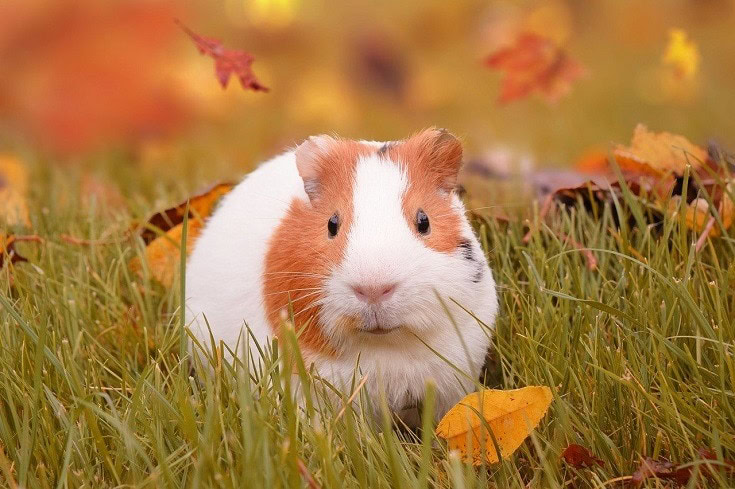
As guinea pigs can’t synthesize or create vitamin C in their bodies, your guinea pig’s diet must contain sources rich in vitamin C, such as carrots. Carrots are around 88% water, which is useful in helping your guinea stay hydrated.
Potential Downsides of Overfeeding Carrots
The main issue with feeding carrots to your guinea pig is that they contain a large amount of carbohydrates. Overconsumption of carrots can lead to problems controlling their blood sugar levels, as the influx of carbohydrates, naturally occurring sugar, and starch can be somewhat detrimental in high amounts.
Like most fruits and vegetables, though carrots contain fiber, it usually isn’t in amounts that a guinea pig needs. Therefore, overconsumption of carrots can make your guinea pig feel full (because of their carbohydrate content) but deprive them of some much-needed fiber (which they usually get from the hay and grass they eat). This results in a bloated and constipated guinea pig. For this reason, fruits and vegetables, while important, should only comprise a small portion of your guinea pig’s daily food intake.
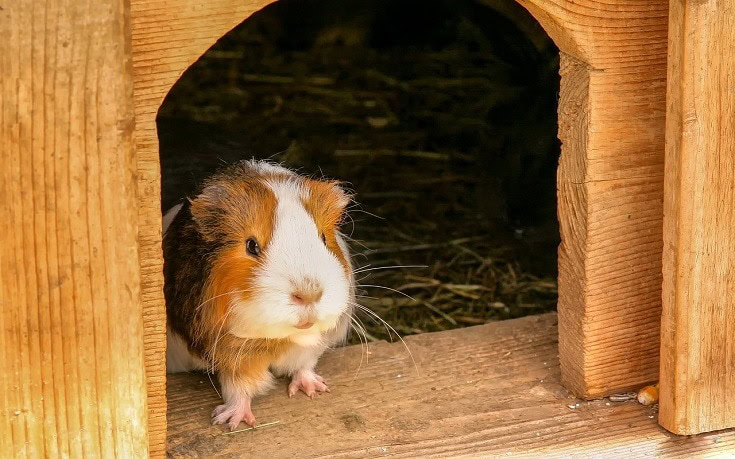
How Many Carrots Can I Feed My Guinea Pig?
If you know your guinea pig has a soft spot for carrots, you might be wondering how many you can safely feed your pig. Carrots can be fed once a week as part of a larger ratio of fresh fruits and vegetables. They should be considered a supplementary item rather than a staple you feed daily.
Remember to introduce new food slowly to prevent your guinea from developing diarrhea. If their poop changes consistency or they seem to behave differently than usual, remove the new food and check in with your veterinarian.
What About Carrot Tops?
Most guinea pigs love the green tops of carrots, and you can safely include them. Just make sure they aren’t fed more than any other part of the carrot plant.
Guinea Pig Diet
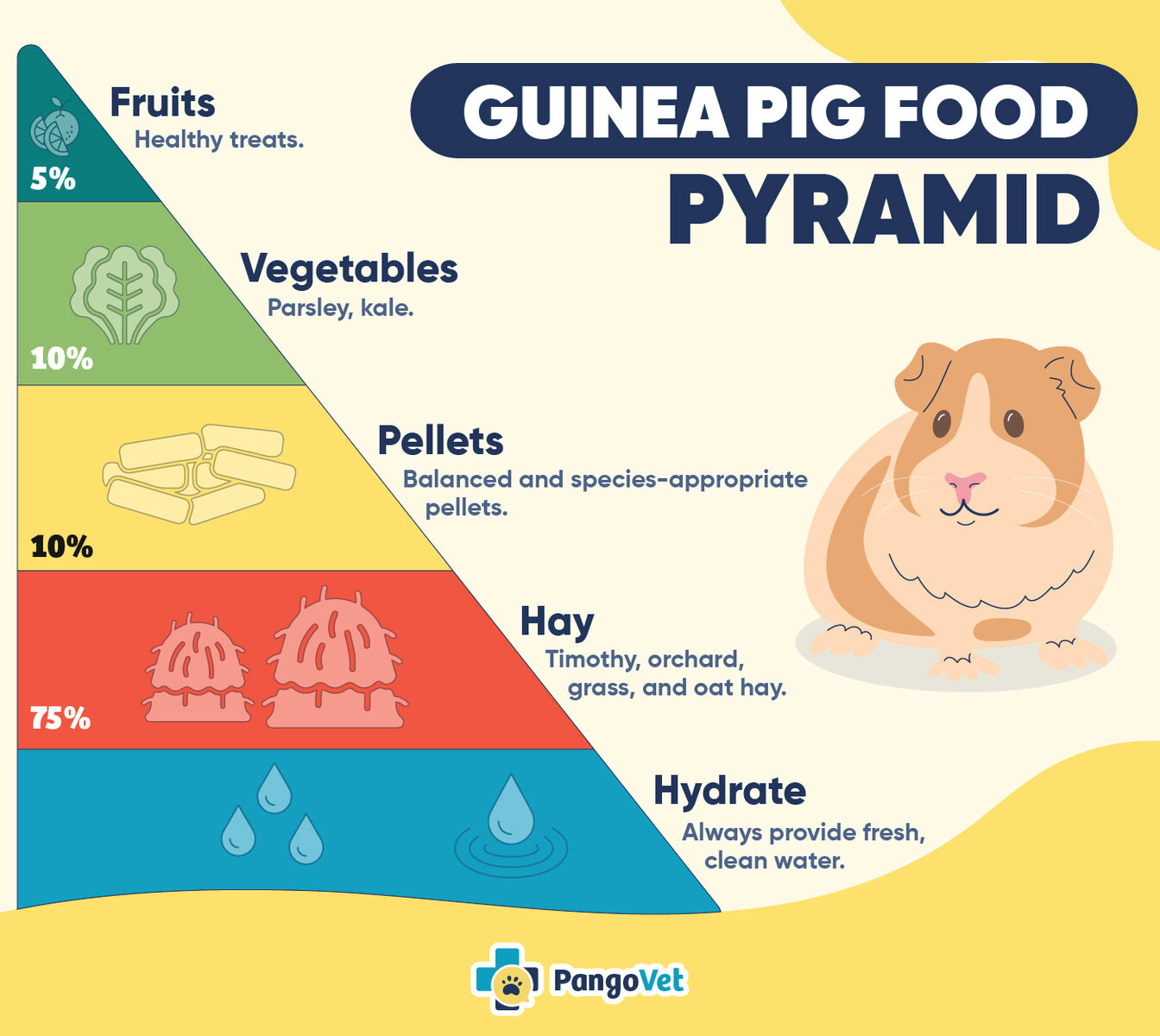
Now we know that carrots should be an occasional treat for your guinea pig, what else should their diet contain? Guinea pigs are herbivores that do best on a pelleted diet made specifically for them and an unlimited amount of high-quality hay. Examples of appropriate hay for guinea pigs include timothy, orchard, grass, and oat hay. Hay and pellets should form the bulk of their diet (approximately 80%–90%). In addition, they require a daily serving of fresh leafy vegetables. Guinea pigs should always have access to fresh, clean drinking water.
Some fruits and grains are suitable treats for guinea pigs. However, they should only comprise about 5%–10% of their daily intake on days when they’re offered and should only be considered treats, not a prominent part of their diet. The reason why fresh vegetables are essential for guinea pigs is because they cannot make their own vitamin C.
The vitamin C requirement of an adult guinea pig that isn’t breeding is around 10mg/kg/day (milligrams per kilogram per day). Though many commercial guinea pig formulas are fortified with vitamin C, they often deteriorate rapidly (especially if the pellets are stored improperly).
The same applies to vitamin C added to a guinea pig’s drinking water. Vegetables are, therefore, considered a great source of vitamin C and have a healthier nutritional profile than most fruits. A small portion size for a guinea pig is a cup of fresh fruits and vegetables.
You can mix in around a quarter cup of carrots in this blend. Carrots should only be included around once a week. Suitable leafy greens should always make up most of your guinea’s fruit and vegetables.
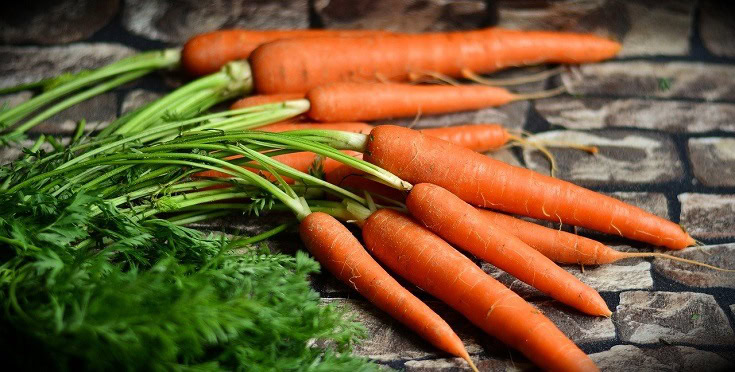

Wrapping It Up
Carrots are safe for your guinea pig to eat as long as you feed them as an occasional treat rather than every day. Healthy green leafy vegetables should always make up most of your pig’s fruit and vegetable ration. However, if your healthy guinea loves crunching on carrot sticks, you can serve them once a week. Hay and pellets should comprise the bulk of your guinea pig’s daily diet.
- See Also: Can Guinea Pigs Eat Melon
